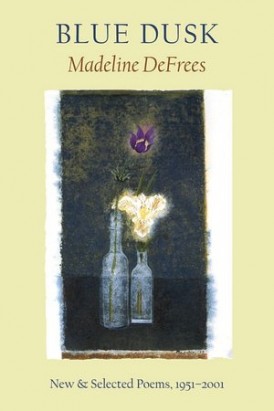Madeline DeFrees, 1919 - 2015
Very sad news: we've received word from her literary executor that Madeline DeFrees, a Seattle poet, passed away last night. She would have been 96 years old next week.
DeFrees was widely celebrated, including a Guggenheim Fellowship in Poetry and two Washington State Book Awards. Her most recent collections were published with Copper Canyon Press. According to her website, DeFrees "spent 38 years as a nun with the Catholic Congregation of Sisters of the Holy Names of Jesus and Mary. She entered the community after high school and later requested release because, in her words, 'religious life and poetry both demand an absolute commitment.'"

DeFrees's work demonstrates an unflinching honesty that could make many self-styled confesssional poets blush, but it never feels clumsy or leering or unwelcome. Her charge as a poet, it seems, was to capture the workings of her mind, with all its contradictions and inconsistencies, and relate it in beautiful, entrancing language. DeFrees was absolutely right; poetry demands "an absolute commitment," and she gave nothing less.